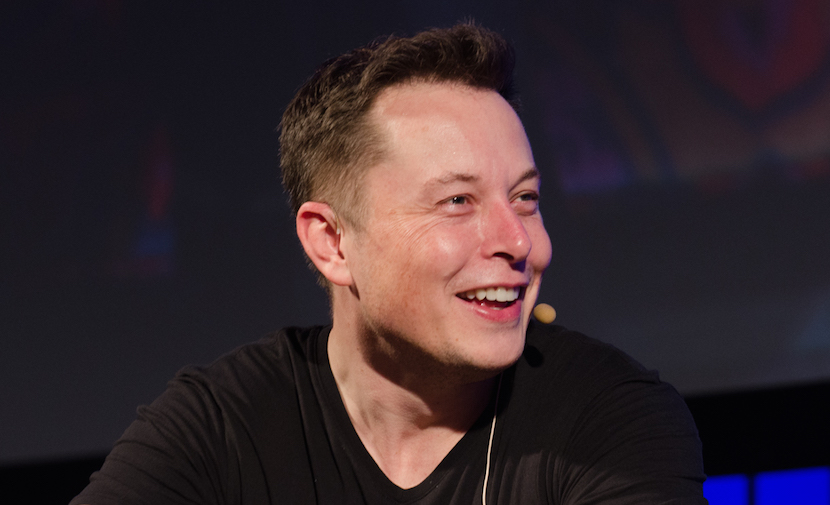
(Bloomberg) – Elon Musk, chief executive officer of Tesla Motors Inc., told electric utility owners they shouldn’t fear that his battery systems will put them out of business – instead, they should buy them.
Most customers in the U.S. will use the Powerwall home system as a backup in the event of a failure, not as a primary source of electricity replacing utility sales, Musk said Monday at a gathering of utility executives in New Orleans. Plus, Musk said electric cars like the Tesla Model S will help triple demand for power in the coming decades. He sees less than a third of that served by distributed generation like the battery storage system and solar panels Tesla backs.
Musk unveiled a suite of batteries in April that he said would “fundamentally change the way the world uses energy.” The equipment allows businesses and homeowners to store power, reducing the need to rely on utility grids for electricity. Musk said the media has been confused about the role of the home battery pack, which wouldn’t be economic as a main supply source. He sees 80 to 90 percent of sales being in the larger Powerpack system, which could help utilities store power to reduce the need for expensive facilities that only run during times of peak demand.
While Tesla’s industrial battery team has been meeting with utility executives for more than two years, Monday’s appearance at the Edison Electric Institute conference marks the first time that Musk, 43, has spoken publicly to the industry. Musk, who also serves as chairman of SolarCity Corp., was questioned by Ted Craver, the CEO of California utility owner Edison International, which has signed a deal to use Tesla’s batteries with its solar installations.
Alternative Energy
The batteries can work with wind and solar electricity systems installed by customers at their homes or offices. Storing energy during times of peak production allows for its dispensing later, easing the problem of intermittent supply when the sun isn’t shining or the wind isn’t blowing.
Annual global investment for energy storage is expected to more than triple from $800 million in 2014 to $5.1 billion in 2020, according to a New Energy Finance report last year. In Tesla’s home state of California, regulators have issued a groundbreaking energy-storage mandate that requires utilities to collectively buy 1.3 gigawatts of energy storage capacity by the end of 2020.
Tesla plans to install 1 gigawatt-hour of battery capacity next year, the majority of it coming from Powerpack sales, Chief Technology Officer J.B. Straubel said in an interview on the sidelines of the conference.
Straubel said the company’s batteries already make economic sense in places with high power prices, such as Hawaii, parts of Germany, Australia and South Africa.
The shares climbed 2.9 percent to $256.29 at the close in New York. Tesla has gained 15 percent this year.
Positive Outlook
Musk, who said he doesn’t believe in disruption for “its own sake,” sees the majority of energy coming from the sun in the future. He said the utility industry’s outlook is positive, and he urged executives at the conference to help streamline the process for installing car charging stations.
While they welcome additional demand from electric cars, utility owners have been struggling to respond to the challenge presented by customers generating their own power. In some states, they are fighting to impose fees to ensure users pay for connecting to the grid even when it’s not their main power source.
“Rumors of our death have been greatly exaggerated,” Leo Denault, chairman and CEO of New Orleans-based utility owner Entergy Corp., said at the start of the conference, quoting Mark Twain.
Selling the bigger Powerpack battery systems to commercial customers and utilities is a bigger near-term opportunity than home unit sales, Ben Kallo, a San Francisco-based analyst with Robert W. Baird & Co., wrote in a note Monday
“Regardless of the end use of storage which ‘rises to the top’ over the next few years, TSLA will be in a unique position to aggressively attack the market and take share,” he wrote, referring to the company by its ticker symbol. “Until sales begin in earnest, we think skepticism will remain high.”


